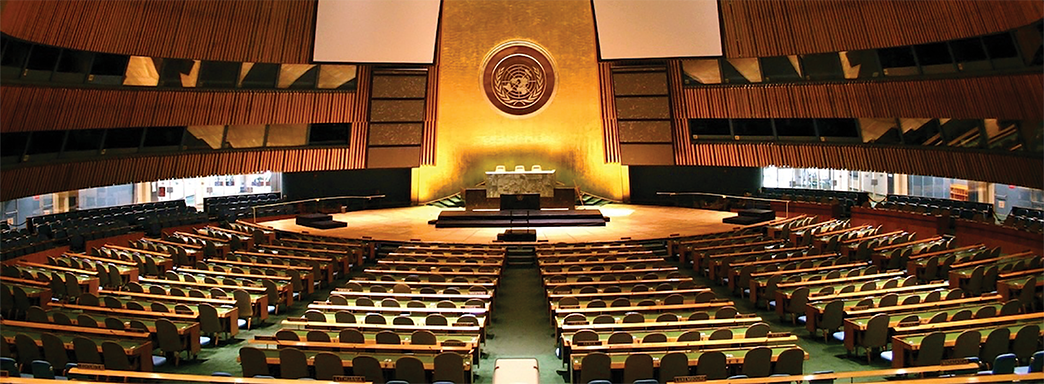AGENDA: UN80 aims to streamline operations and relocate agencies, but critics say true reform requires a more transformative vision…
By Natalia Marques
In March of this year, UN Secretary-General António Guterres launched the UN80 Initiative, a system-wide reform effort. UN80 proposals center around reshaping how the United Nations works, including goals which are intended to make the body more efficient and cost-effective. There are more ambitious proposals, including plans to move major UN agencies including UNICEF, UNFPA, and UN Women from western cities such as New York to Nairobi, Kenya.
But some are calling for an even more transformative agenda of reform, which could shift long-standing power imbalances in the UN from the West and towards other regions. “The agenda set by the UN is focused on its own organisational weaknesses and does not address the largely political questions that scuttle the UN’s work,” writes Vijay Prashad, the executive director of the Tricontinental Institute.
Beyond major UN agencies, Prashad calls for the moving of the entire UN Secretariat to the Global South. Prashad also echoes the calls of peace activists to cut the global arms trade.
“Wars are waged not only for domination but for the profits of arms dealers,” Prashad writes. “Meanwhile, the total UN peacekeeping budget is only USD 5.6 billion, and 92% of the peacekeepers come from the Global South. The Global North makes money on war, while the Global South sends its soldiers and policemen to try and prevent conflicts.”
Although many cities vied for the honor of being chosen to host the United Nations headquarters, New York City was ultimately chosen in 1946 in the years following World War II, when the US entered the world stage as the dominant economic and military power. What finally clinched the deal for New York was after the ultra-wealthy John D. Rockefeller Jr., of the Standard Oil fortune, offered to donate USD 8.5 million to purchase the land which would ultimately become the UN HQ.
Since then, the United States has leveraged the UN’s location within US borders in its political interests. In 1947, the US signed an agreement with the UN, titled the “Headquarters Agreement,” promising to “not impose any impediments to transit to or from the headquarters district” for representatives of member states, regardless of whether Washington had friendly relations with them.
However, whether or not the US can deny entry to UN leaders has long been a point of contention. When the US Congress approved the UN Headquarters Agreement, it passed separate legislation which stated that “Nothing in the agreement shall be construed as in any way diminishing, abridging, or weakening the right of the United States to safeguard its own security and completely to control the entrance of aliens into any territory of the United States other than the headquarters district and its immediate vicinity.”
The US’s willingness to deny visas to leaders of member states was reflected as early as the Cold War era. For example, from the early 1960s onward, after the US broke diplomatic ties with Havana, Cuban representatives to the UN were among the most heavily restricted delegations in New York.
It was this restriction that led to the historic meeting between Black leader Malcolm X and Cuban revolutionary Fidel Castro, after Castro was invited to stay at the Hotel Theresa by Malcolm following hostility at a downtown hotel.
Under the first Trump administration, restrictions against Cuba officials once again tightened dramatically. In 2019, the State Department announced that Cuban officials within Cuba’s UN mission would be confined to only travel within the island of Manhattan, a measure harsher than many Cold War era rules. Cuban Foreign Minister Bruno Rodriguez denounced these actions as “unjustified” at the time.
Other leaders have also been similarly targeted – notably, denying PLO leader Yasser Arafat a visa in 1988 when he was invited to address the UN in New York.
The UN responded by moving the General Assembly’s special session to Geneva, Switzerland so he could speak – essentially isolating the US in its policy against the Palestinian leader.
Washington’s ability to decide who even gets through the UN’s front door is only one element of the many issues with the US’s power over UN processes.
Beyond wielding visa power to silence or sideline governments it opposes, the United States also uses its outsized financial role inside the UN system as leverage. That dynamic is most visible in the fate of the UN’s Sustainable Development Goals.
While the United States is the single largest financial contributor to the United Nations, it has repeatedly undermined the international body’s Sustainable Development Goals (SDGs). Under the Trump administration, the US pulled out of the Paris climate accord and explicitly denouncing and rejecting the 2030 Agenda for Sustainable Development in March of 2025.
Across both Republican and Democratic Party-run governments, the US has given money to the UN on its own terms but has refused to sign up for binding rules that would guarantee steady funding for poorer countries, leaving SDG 10 on inequality and SDG 17 on global partnerships chronically underfunded.


































